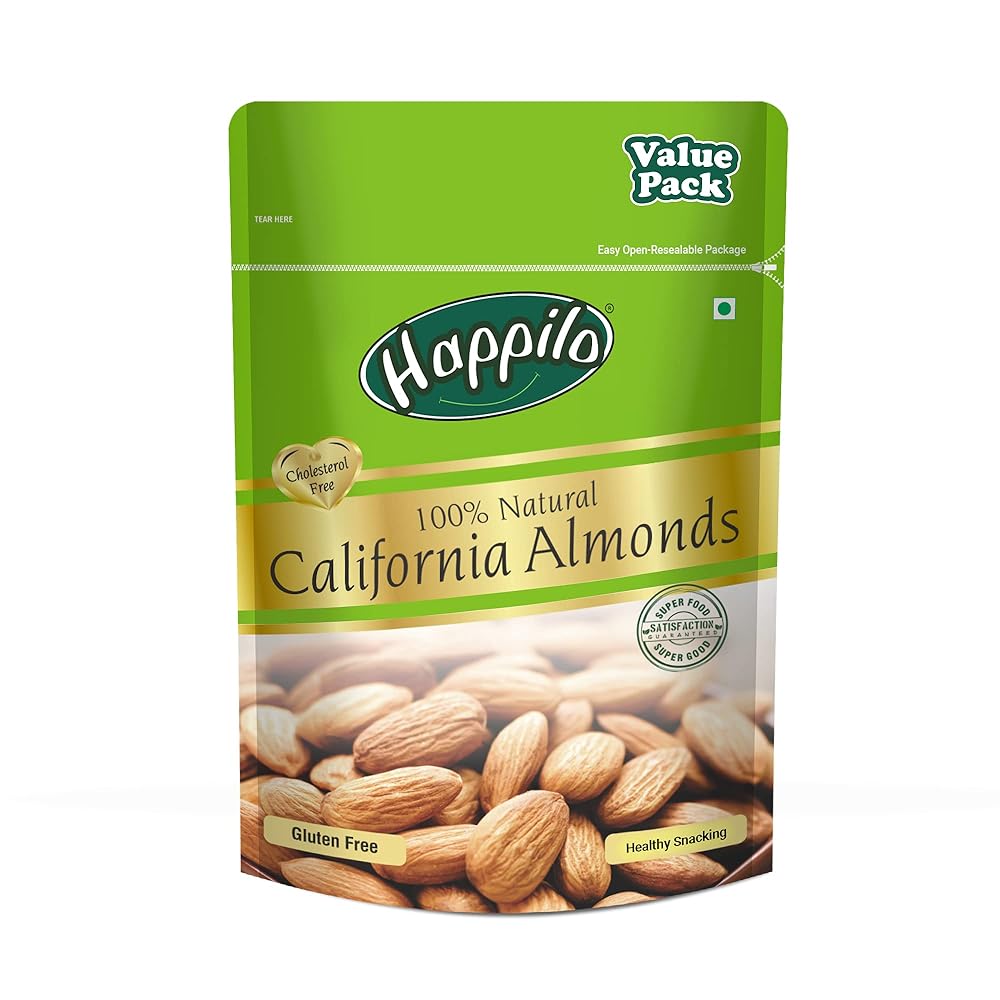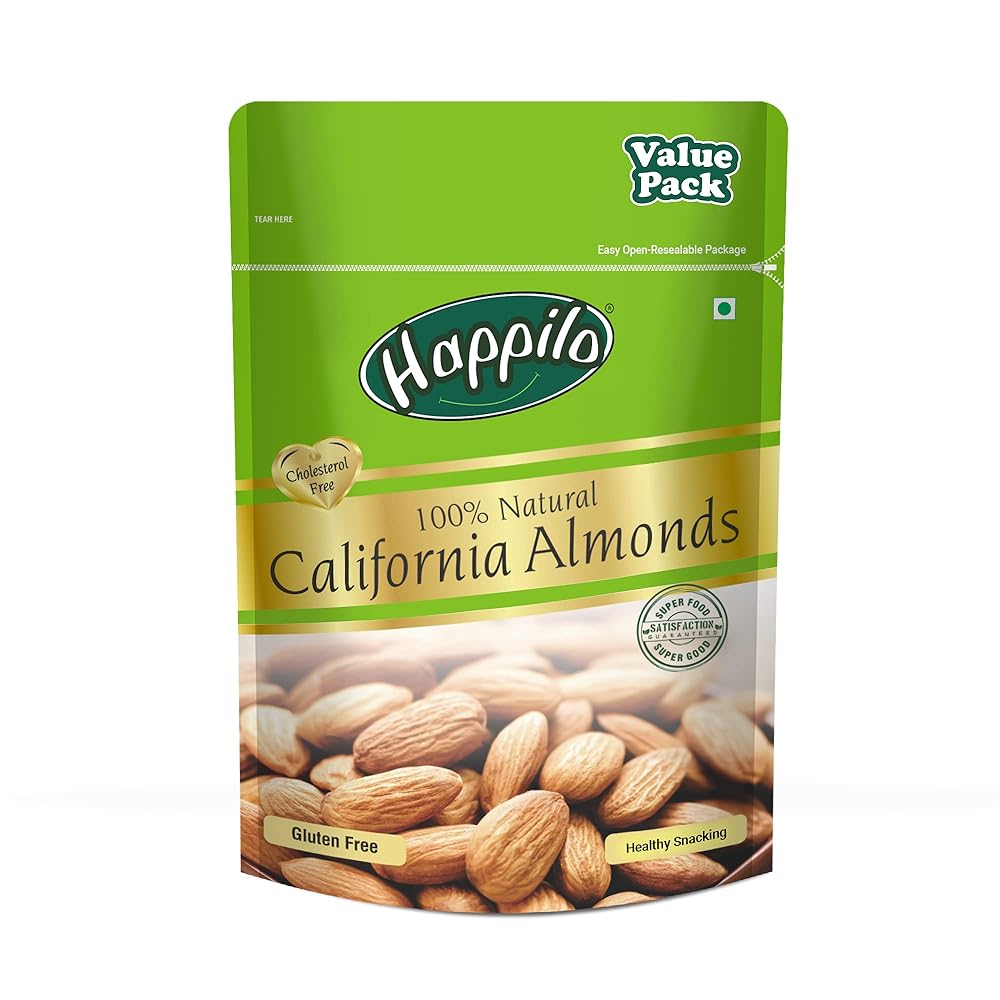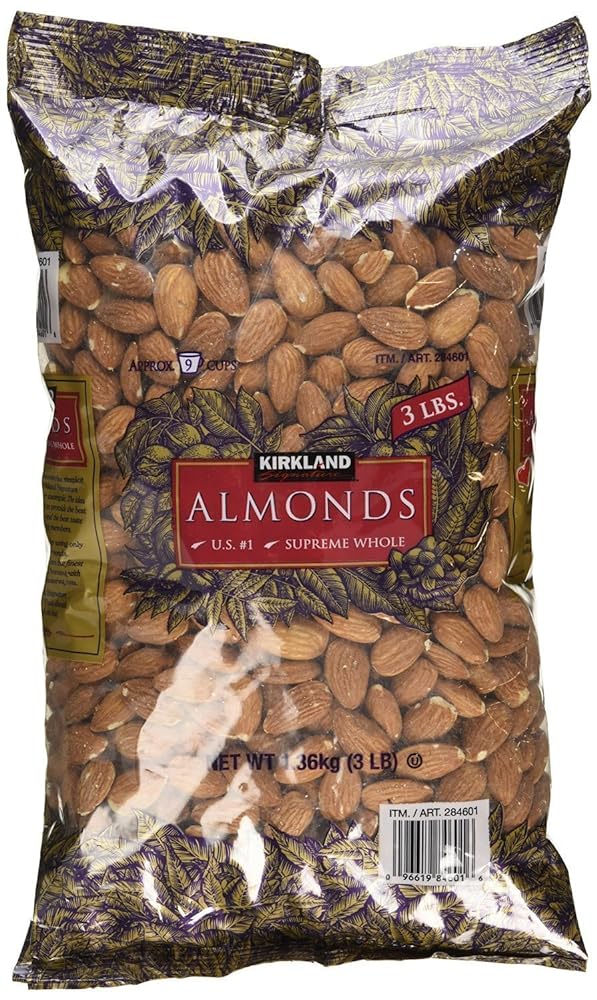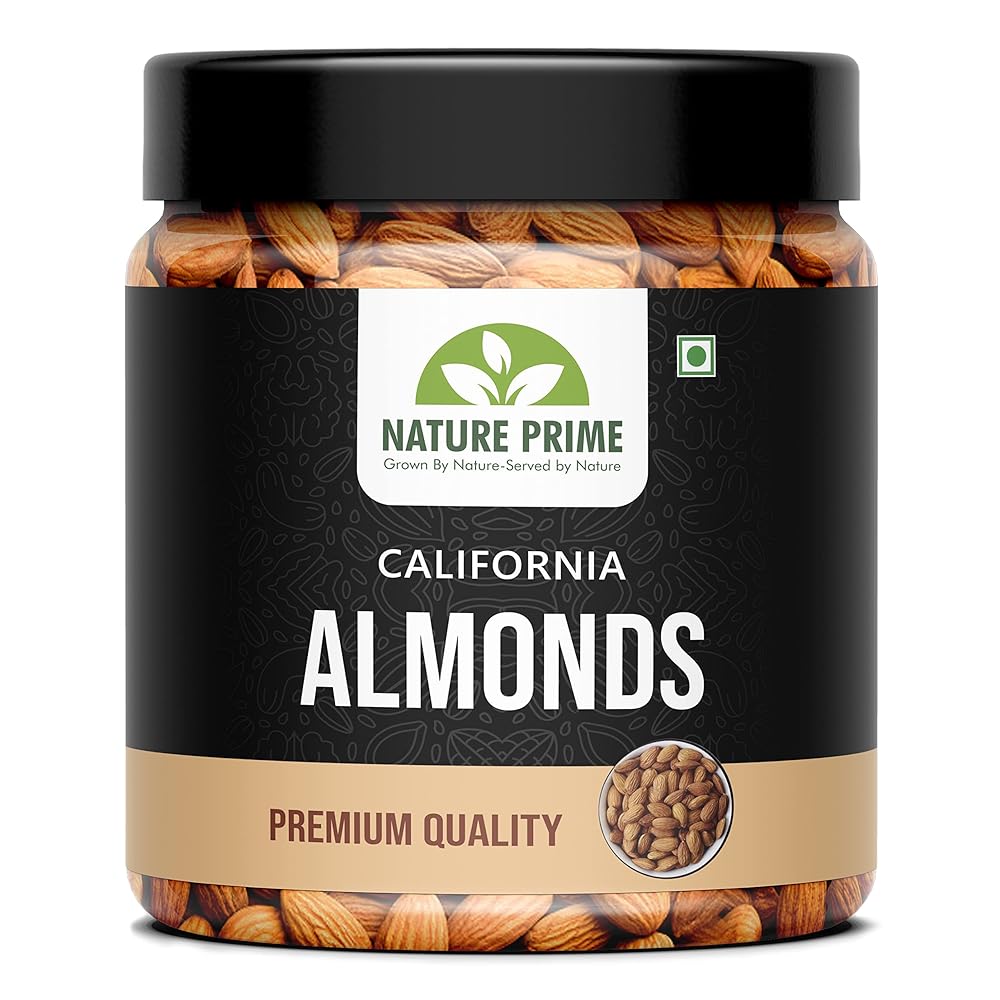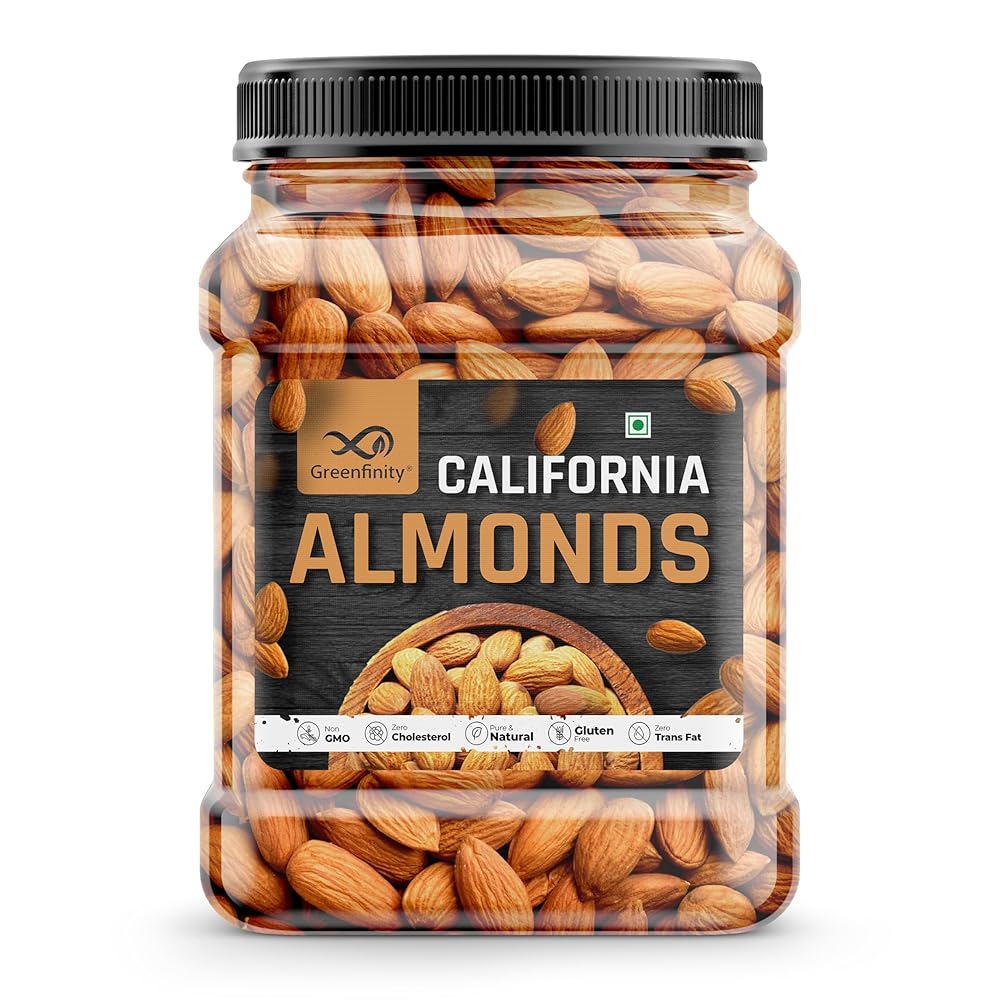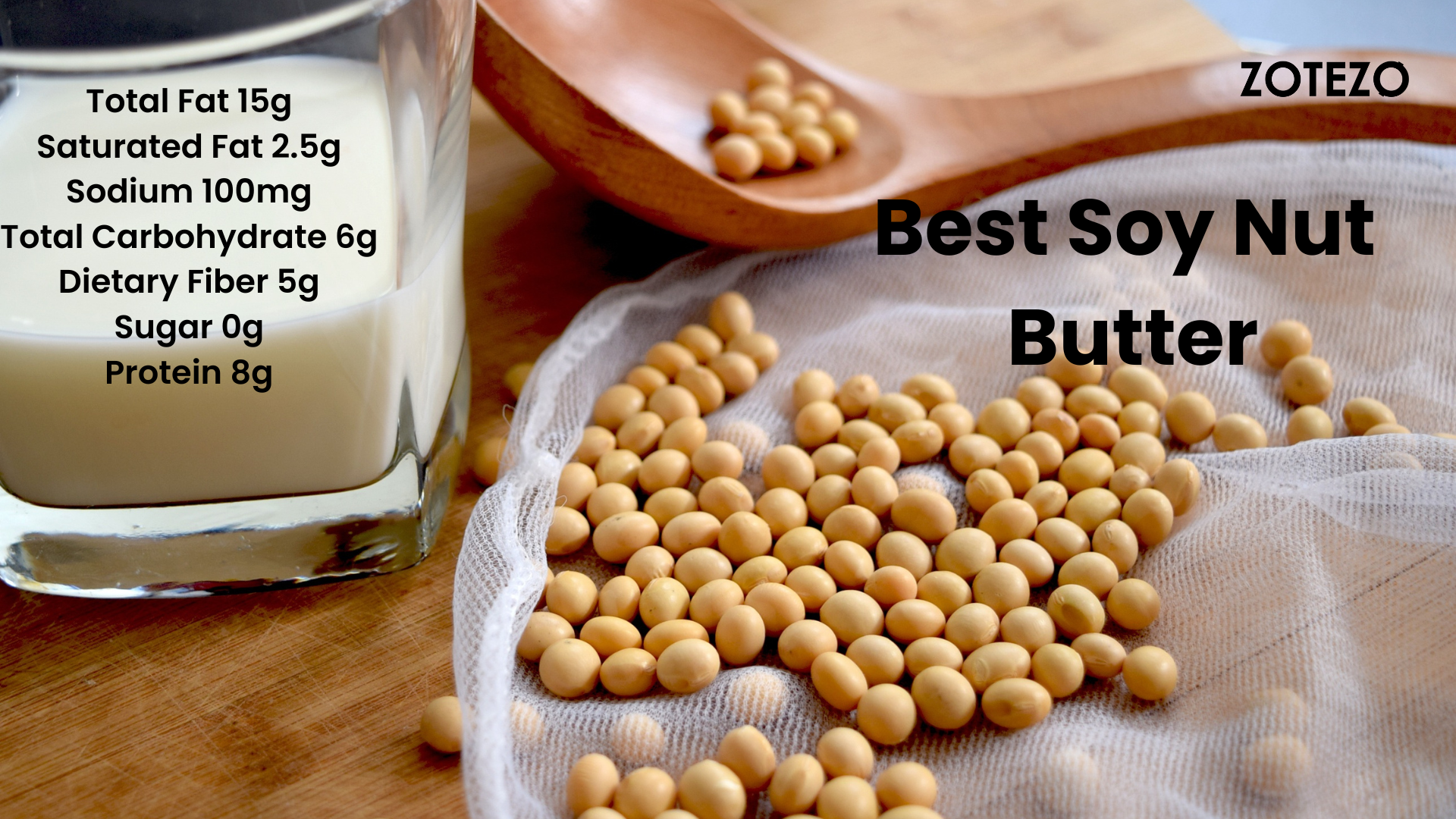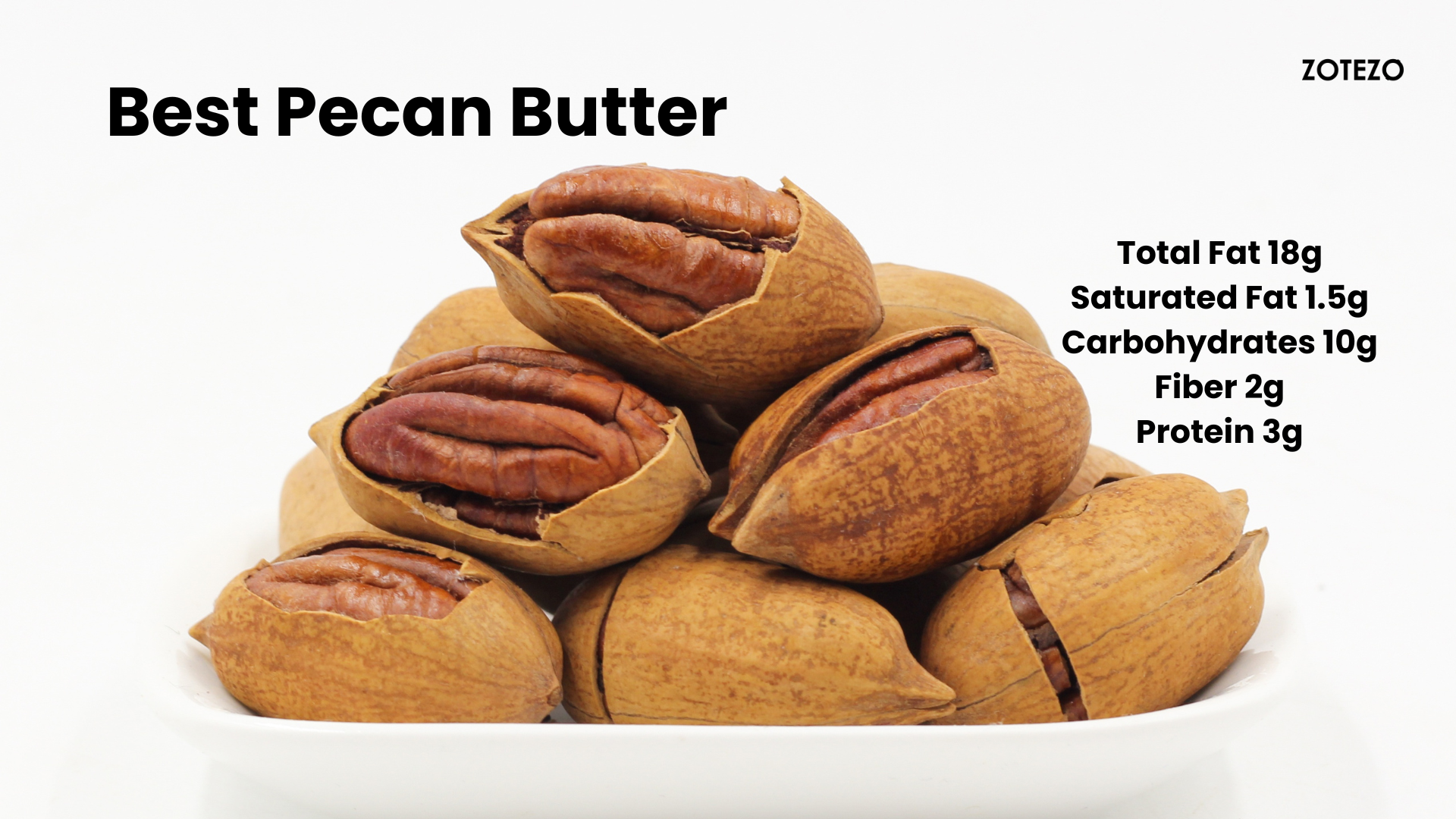Introduction
Organic almonds, these little powerhouses are not just your average nuts; they’re a nutrient-dense delight packed with a plethora of health benefits. In this article, we embark on a journey to uncover the secrets of the “Best Organic Almonds” – a snack that’s not just a crunchy delight but also a nutritional powerhouse.
Organic almonds, cultivated with care and commitment to sustainable farming practices, boast a flavor profile that’s as robust as their nutritional content. From heart-healthy monounsaturated fats to a generous dose of vitamin E and essential minerals, these almonds are a go-to snack for those seeking a delicious yet health-conscious option.
Join me as we explore the organic almond orchards, understand the eco-friendly practices behind their cultivation, and delve into the science-backed reasons why these little marvels deserve a prime spot in your pantry.
So, grab a handful, and let’s embark on a delectable journey to discover the best organic almonds for your well-rounded, wholesome snacking pleasure.

Our pick of the 7 best Organic Almonds of 2024 in India
Zotezo Score | Best Almonds | Lowest Price |
|---|---|---|
|
B+ |
||
|
B |
||
|
B |
||
|
B |
||
|
C+ |
||
|
C+ |
||
|
C |
Let's take a deep dive into these 7 best Almonds in India
Best Overall Almonds in India
Happilo International Pvt Ltd
B+
Zotezo review
The Happilo 100% Natural Premium California Dried Almonds 500g Pack Pouch offers good quality almonds that are high in fiber and gluten-free, making them suitable for all age groups. While they may have a slight bitter taste compared to local market almonds and are smaller in size than expected, their immunity-boosting properties and real nut content make them a worthwhile purchase.
Product details
Benefits of Happilo Premium California Almon...
Drawbacks
Happilo International Pvt. Ltd.
B
Zotezo review
The Happilo 100% Natural Premium California Almonds 1kg Value Pack Pouch offers delicious taste, high fiber content, and immunity-boosting properties. However, some users have noted concerns about the size of the almonds and potential quality issues.
Product details
Benefits of Happilo Premium California Almon...
Weaknesses
Now Foods
B
Zotezo review
The Kirkland Signature Supreme Whole Almonds, 3 Pound (Pack of 2) offers a cost-effective way to purchase high-quality, natural almonds in bulk. While the large quantity may be overwhelming for some consumers and the price is higher than smaller packaging options, the product provides a healthy and nutrient-rich snacking option without any added preservatives.
Product details
Benefits of Kirkland Signature Supreme Whole...
Disadvantages
AJIT SINGH OM PARKASH PVT LTD
B
Zotezo review
The “Nuts About You Premium ALMONDS” are a good choice for those seeking fresh, crispy, and antioxidant-rich almonds. While some customers have reported inconsistencies in quality, the majority find them to be good quality at a reasonable price.
Product details
Benefits of Brand Name Almonds, 200 g | New ...
Negatives
Nature Prime
C+
Zotezo review
Nature Prime 100% Natural and Premium California Almond offers outstanding quality almonds packed with protein, omega-3, and antioxidants in a resealable package, making it a healthy and fresh snack option. However, some almonds may lack crunchiness and have a bitter taste, occasionally not meeting quality expectations.
Product details
Benefits of Nature Prime California Almonds ...
Cons
Minerva Tradewell
C+
Zotezo review
The GreenFinity Fresh Almonds offer a highly nutritious and delicious snacking option rich in healthy fats, antioxidants, and packed with essential vitamins and minerals. However, some users may encounter immature almonds and variations in almond quality.
Product details
Benefits of GreenFinity Fresh Almonds 500gm
Drawbacks
Sun Organic Industries Pvt. Ltd.
C
Zotezo review
The Wonderland Foods Premium Raw California Almonds 1Kg Pouch Pack offers nutritious and gluten-free almonds that boost immunity, but some users may find the almonds to be small in size and lacking freshness, resulting in a stale taste.
Product details
Benefits of Wonderland Foods Premium Califor...
Weaknesses
Tips for choosing the right Organic Almonds for you
As a dietitian passionate about healthy snacking, I’m here to guide you through the intricate realm of choosing the best organic almonds that align with your taste preferences and health goals. Let’s embark on a journey of understanding the nuances of almond varieties, certifications, sourcing practices, and more, so you can confidently make informed choices when selecting these nutritional powerhouses.
1. Types of Organic Almonds: Varieties Beyond Basic
Organic almonds come in various types, each with its own unique flavor profile and characteristics. The two primary varieties you’ll encounter are sweet almonds and bitter almonds. Sweet almonds are the go-to choice for snacking and cooking, delivering a mild, nutty taste. Bitter almonds, on the other hand, are primarily used to produce almond oil and have a more intense flavor. Always ensure you’re purchasing sweet almonds for consumption, as bitter almonds contain a compound called amygdalin, which can convert to cyanide when ingested.
In sweet almonds, you’ll find further distinctions such as Nonpareil, Carmel, and Butte varieties Nonpareil almonds are known for their smooth, thin skin and a delicate taste, making them a popular choice for eating raw or in salads. Carmel almonds have a slightly darker skin and a robust flavor, perfect for roasted or flavored almond varieties. Butte almonds are plump, round, and versatile, often used in almond butter or milk.
2. Certifications Matter: Look for the Organic Seal
When it comes to organic almonds, certifications play a crucial role in ensuring that you’re getting a product free from synthetic pesticides, herbicides, and genetically modified organisms (GMOs). Look for the USDA Organic certification, a gold standard that guarantees the almonds are grown and processed according to strict organic standards. This certification not only ensures the absence of harmful chemicals but also signifies a commitment to sustainable and eco-friendly farming practices.
3. Ingredients Check: Pure Almond Goodness
One of the perks of opting for organic almonds is the simplicity of the ingredients list – it should contain one thing: almonds. Avoid products with unnecessary additives, preservatives, or artificial flavors that might compromise the nutritional integrity of your almonds. Some packaged almonds may come lightly seasoned or roasted, which is perfectly fine as long as the additional ingredients are wholesome and contribute to the overall flavor without compromising nutritional value.
4. Harmful Ingredients Alert: Steer Clear of Unwanted Additives
While we’re on the topic of ingredients, it’s crucial to be aware of harmful additives that might find their way into certain almond products. Keep an eye out for almonds treated with propylene oxide, a fumigant linked to respiratory and skin issues. Additionally, some roasted almonds might be coated with unhealthy oils or excessive salt. Opt for products that use heart-healthy oils like olive or coconut oil and have minimal salt content. Reading the ingredient list is your first line of defense against unwanted additives.
5. Source Matters: From Orchard to Package
The journey from almond orchard to your pantry is a crucial factor in determining the quality of your organic almonds. Investigate the source of the almonds and the farming practices employed. California is a significant hub for almond production, and many top-quality organic almonds originate from this region. Look for brands that are transparent about their sourcing, providing information about the specific orchards or regions where the almonds are grown. This transparency indicates a commitment to quality and allows you to trace the journey of your almonds from farm to table.
6. Processing Methods: The Impact on Nutrient Retention
Understanding the processing methods applied to organic almonds is essential in preserving their nutritional value. **Raw almonds**, which undergo minimal processing, retain their natural enzymes, healthy fats, and nutrients. Roasted almonds, while delicious, may experience a slight reduction in certain nutrients due to the heat exposure. However, opt for almonds that are dry-roasted or roasted with heart-healthy oils to minimize nutrient loss. Steer clear of almonds treated with excessive heat or processed using unhealthy oils that can negate the health benefits.
7. Storage and Packaging: Maintaining Freshness
Once you’ve selected your ideal organic almonds, proper storage is key to maintaining their freshness and nutritional quality. Almonds, like many nuts, are susceptible to rancidity due to their high oil content. Choose almonds packaged in airtight containers or resealable bags to preserve their flavor and prevent exposure to air. Consider transferring your almonds to a cool, dark place or the refrigerator to extend their shelf life and prevent the development of off-flavors.
8. Ethical and Sustainable Practices: Supporting a Greener Future
For the environmentally conscious consumer, delving into the ethical and sustainable practices of almond producers is a worthy endeavor. Look for brands that prioritize water efficiency in their farming practices, as almond cultivation has been associated with water consumption concerns in certain regions. Supporting producers committed to sustainability, waste reduction, and ethical labor practices ensures that your almond purchase contributes to a greener and more socially responsible future.
9. Quality Over Quantity: Investing in Nutritional Value
While budget considerations are always a factor, prioritize quality over quantity when it comes to organic almonds. Investing in high-quality almonds may come with a slightly higher price tag, but the nutritional benefits and superior taste are worth the investment. Remember that a small serving of nutrient-dense almonds can be more satisfying and healthful than a larger quantity of lower-quality alternatives.
10. Taste Test: Finding Your Perfect Almond
Last but certainly not least, indulge in a taste test adventure to discover the flavor nuances of different organic almonds. Whether you prefer the delicate sweetness of Nonpareil almonds, the robust taste of Carmel almonds, or the versatility of Butte almonds, experimenting with various types allows you to find your perfect almond match. Consider trying both raw and roasted options to determine which suits your palate and culinary preferences best.
Products listed here are carefully reviewed and tested by our expert authors and reviewers. If you buy through links on this page, we may earn a small commission. Here’s our editorial process.
How we reviewed these products
Benefits of using Organic Almonds
Almonds undoubtedly take the spotlight, earning their place as one of the most revered snacks in the health-conscious community. Beyond their delectable taste and satisfying crunch, almonds boast an impressive array of health benefits that make them a must-have addition to your daily diet. As a dietitian passionate about promoting wholesome eating, let’s delve into the remarkable health benefits that the best almonds bring to the table – or rather, to your snack bowl.
1. Heart Health: Nourishing from Within
Almonds have long been celebrated for their heart-friendly attributes, and rightfully so. Packed with monounsaturated fats, almonds contribute to a heart-healthy diet by helping to lower levels of LDL (bad) cholesterol while maintaining or even increasing levels of HDL (good) cholesterol. The presence of vitamin E, a potent antioxidant, further supports cardiovascular health by preventing the oxidation of cholesterol, a process that can lead to heart disease.
Moreover, almonds are a rich source of arginine, an amino acid that plays a pivotal role in relaxing blood vessels, thereby promoting healthy blood flow and reducing the risk of blood clots. The combination of these heart-loving nutrients makes almonds an excellent ally in maintaining optimal cardiovascular function.
2. Weight Management: The Snack with Staying Power
Contrary to the common misconception that nuts contribute to weight gain, almonds have been shown to be a valuable asset in the journey towards achieving and maintaining a healthy weight. The fiber and protein content of almonds work synergistically to enhance satiety, keeping hunger pangs at bay and promoting a feeling of fullness.
Additionally, the act of chewing almonds triggers a sensory response that signals to the brain that you’re eating something substantial, further contributing to the satisfaction of your appetite. Incorporating a moderate portion of almonds into your snacks or meals can be an effective strategy to curb overeating and support weight management goals without compromising on flavor or nutrition.
3. Blood Sugar Control: A Steady Ally
For individuals managing blood sugar levels, almonds emerge as a stellar snack choice. The combination of healthy fats, fiber, and protein in almonds helps slow down the absorption of sugar from the bloodstream, preventing rapid spikes in blood glucose levels.
Research suggests that incorporating almonds into meals or snacks may contribute to improved glycemic control, making them a wise choice for individuals with diabetes or those at risk of developing insulin resistance. The ability of almonds to promote a gradual and steady release of energy aligns with the principles of a balanced diet that supports stable blood sugar levels throughout the day.
4. Bone Health: A Treasure Trove of Nutrients
Almonds are not only a treat for your taste buds but also a treasure trove of nutrients essential for bone health. A single serving of almonds provides a noteworthy dose of calcium, phosphorus, and magnesium, all crucial minerals that contribute to the development and maintenance of strong and healthy bones.
While calcium is renowned for its role in bone mineralization, phosphorus complements this process by working in tandem to form the structural framework of bones. Magnesium, on the other hand, aids in the absorption and utilization of calcium, ensuring that these minerals work harmoniously to support optimal bone density. Including almonds as part of a well-rounded diet contributes to a holistic approach to bone health.
5. Brain Health: Nourishing the Mind
The nutritional composition of almonds extends its benefits to cognitive well-being. Almonds are rich in vitamin E, an antioxidant known for its protective role against oxidative stress, which is implicated in the aging process and cognitive decline. The potential neuroprotective effects of vitamin E make almonds a valuable addition to a diet aimed at supporting brain health.
Furthermore, almonds contain phenolic compounds, which have been associated with cognitive function and may play a role in reducing the risk of neurodegenerative disorders. Whether enjoyed as a standalone snack or incorporated into meals, almonds contribute to the overall nourishment of the brain, supporting cognitive function and potentially mitigating age-related cognitive decline.
6. Skin Health: Radiance from Within
Beautiful skin begins with what you put inside your body, and almonds offer a nutritional boost that transcends mere taste. The high content of vitamin E in almonds contributes to skin health by acting as a potent antioxidant that protects the skin from oxidative damage caused by free radicals.
Moreover, the monounsaturated fats in almonds provide essential fatty acids that help maintain skin elasticity and hydration. The combination of these nutrients makes almonds a delicious and wholesome snack that not only satisfies your taste buds but also contributes to a radiant and healthy complexion.
7. Gut Health: A Fiber-Fueled Friend
A thriving gut microbiome is essential for overall health, and almonds can play a supportive role in nurturing your digestive well-being. Almonds are an excellent source of dietary fiber, which serves as a prebiotic – a substance that nourishes the beneficial bacteria in your gut.
By promoting the growth and activity of these friendly microbes, almonds contribute to a balanced gut microbiota, which is linked to improved digestion, nutrient absorption, and even immune function. Including almonds as part of a fiber-rich diet supports the health and diversity of your gut microbiome, laying the foundation for overall well-being.
8. Antioxidant Defense: Shielding Against Oxidative Stress
The battle against oxidative stress – a process linked to aging and various chronic diseases – is waged daily within our bodies. Almonds, with their rich content of antioxidants such as vitamin E, flavonoids, and polyphenols, serve as formidable allies in this ongoing fight.
These antioxidants neutralize free radicals, unstable molecules that can wreak havoc on cells and contribute to inflammation and disease. By incorporating almonds into your diet, you provide your body with a diverse array of antioxidants that work synergistically to defend against oxidative stress, promoting overall health and longevity.
9. Energy Boost: Fueling Your Active Lifestyle
Whether you’re hitting the gym, going for a run, or simply navigating a busy day, almonds make for an ideal energy-boosting snack. The combination of healthy fats, protein, and a moderate amount of carbohydrates provides a sustained release of energy, helping to stave off fatigue and maintain vitality throughout the day.
Almonds are a convenient and portable snack option that can be easily incorporated into pre-workout or mid-day snacks, providing a nutrient-dense source of energy without the need for refined sugars or processed snacks. Fueling your body with almonds supports both physical and mental stamina, making them a go-to choice for individuals leading an active lifestyle.
Side-effects of using Almonds
Almonds are generally safe and healthy to eat, but they may have some side effects if you eat too many of them or if you have an allergy to them. Some of the possible side effects of eating almonds are:
Digestive issues:
Almonds are high in fiber, however, too much fiber can cause constipation, bloating, gas, diarrhea, or abdominal pain. You should limit your intake of almonds to about 1 ounce (28 grams) or 23 almonds per day and drink plenty of water to avoid these problems.
Weight gain:
Almonds have high calories and fat content, which can provide you with energy and satiety. However, too many calories and fat can lead to weight gain if you don’t balance them with other foods and physical activity. You should eat almonds in moderation and as part of a balanced diet to prevent excess weight gain
Kidney stones:
If you have a history of kidney stones or a high risk of developing them, you should limit your intake of almonds and other oxalate-rich foods like spinach, rhubarb, beets, and chocolate. You should also drink enough water to flush out the oxalate from your body.
Impaired blood clotting:
Too much vitamin E can interfere with your blood clotting mechanism and increase your risk of bleeding or hemorrhagic stroke. You should not eat more than 15 milligrams (mg) of vitamin E per day from all sources, including almonds and other foods like eggs, spinach, whole grains, and fortified cereals.
Vitamin E toxicity:
Almonds are one of the richest sources of vitamin E, which is a fat-soluble vitamin that can accumulate in your body if you consume more than you need. The upper limit for vitamin E intake is 1,000 mg per day for adults. Symptoms of vitamin E toxicity include nausea, diarrhea, fatigue, headache, blurred vision, bleeding, and muscle weakness.
Allergic reaction:
These nuts contain a protein called amandine, which is similar to the proteins in other tree nuts like cashews and walnuts. Symptoms of an almond allergy include itching, swelling, hives, rash, wheezing, coughing, sneezing, runny nose, nausea, vomiting, diarrhea, abdominal pain, or anaphylaxis.
Drug interactions:
Almonds may interact with some medications that affect your blood sugar levels or blood pressure levels. Almonds can lower your blood sugar levels by slowing down the absorption of carbohydrates in your intestines. They can also lower your blood pressure levels by relaxing your blood vessels and increasing the production of nitric oxide in your body. If you take medications for diabetes or hypertension, you should monitor your blood sugar levels and blood pressure levels closely and adjust your dosage accordingly if you eat almonds regularly.
Who should use Organic Almonds
Almonds are a great source of fiber, magnesium, and vitamin E, among other vital elements. Phosphorus and calcium, which are beneficial to healthy bones, are found in almonds. For diabetic people, reducing blood sugar rises after meals is crucial, and almonds appear to help with this.
Recommended Dosage of Almonds
One of the most searched questions on Google is, ‘How many almonds to eat per day?’ Hold your horse as now we’re going to reveal all about how many almonds you should eat a day that won’t harm your overall health status.
According to various sources, the recommended amount of almonds to eat per day is 22-23 almonds or 1 ounce. This is because almonds are rich in nutrients, such as protein, fibre, healthy fats, vitamin E, magnesium, and calcium, that can benefit your health in many ways. However, eating too many almonds can also cause some side effects, such as digestive problems, weight gain, or interference with nutrient absorption. Therefore, it is best to eat almonds in moderation and as part of a balanced diet. 1 ounce of almonds has approximately 164 calories. Most of the calories come from fat, as almonds are high in healthy monounsaturated and polyunsaturated fats. Almonds also provide some protein, fibre, and carbohydrates.
How to consume Almonds
Almond calories:
One almond has about 7.7 calories, according to the USDA. Almonds are a healthy and satisfying snack that can provide many benefits for your body and mind. Almonds play a great role in lowering cholesterol, improving blood sugar control, supporting brain function, and promoting weight loss. However, you should also be mindful of the portion size and calories of almonds, as they are high-fat and high-calorie food.
How to eat almonds?
You can use almonds in various ways to enjoy their taste and nutrition. Here are some ideas:
• Eat them raw or roasted as a snack or add them to your trail mix, granola bars, or yoghurt.
• Soak them overnight or for a few hours in water and peel off their skin. This can make them easier to digest and absorb their nutrients. You can also blend them with water and strain them to make almond milk, which is a dairy-free alternative for your cereal, coffee, or smoothies.
• Grind them into a fine powder and use it as almond flour or almond meal for baking low-carb bread, muffins, cookies, or pancakes. You can also use it as a coating for chicken or fish instead of breadcrumbs.
• Process them in a food processor or blender until they form a smooth paste and use it as . You can spread it on toast, crackers, apple slices, or celery sticks. You can also add some honey, cocoa powder, or vanilla extract for extra flavour.
• Chop them coarsely and use them as a crunchy topping for your salads, soups, oatmeal, or ice cream. You can also toast them lightly in a skillet with some salt, sugar, cinnamon, or other spices for a sweet and savoury treat.
Understand the who, what & why behind your favourite products
Brand Values | Product Philosophy | Product USPs
Read brand stories, their raison-d'etre, and understand what drives them to caringly create the highest quality products for your well-being.
Brand stories
Frequently asked questions on Organic Almonds
1. Are almonds good for you?
2. How many calories are in almonds?
3. Are almonds a good source of protein?
4. Can almonds help with weight loss?
5. Are almonds a common allergen?
6. Can almonds be included in a gluten-free diet?
7. Are raw or roasted almonds better?
8. Can almond consumption lower cholesterol levels?
9. How should almonds be stored to maintain freshness?
10. Are almonds good for skin?
11. Is almond good for your hair?
12. Can I eat almonds in empty stomach?
13. Can we eat almonds at night?
Expert reviews you can rely upon
Expert Insights | Product Reviews | Connect with Experts
Gain valuable insights and read unbiased product reviews by subject matter Experts on Zotezo, the ultimate trust commerce platform, that empowers millions globally to make informed decisions for their wellbeing.
Expert Advisory
Conclusion
In conclusion, almonds are a highly nutritious and versatile nut that offers numerous health benefits. They are rich in healthy fats, protein, fiber, vitamins, and minerals, making them a valuable addition to a balanced diet. Regular consumption of almonds has been associated with improved heart health, reduced cholesterol levels, and better weight management. Almonds are also suitable for those following gluten-free or plant-based diets, as they are naturally gluten-free and provide a good source of plant-based protein.
Was this article good enough to help you out? Then share it with your friends and family. Do give proper feedback, and tell us which one is your favorite among this list of the best almonds in India.

